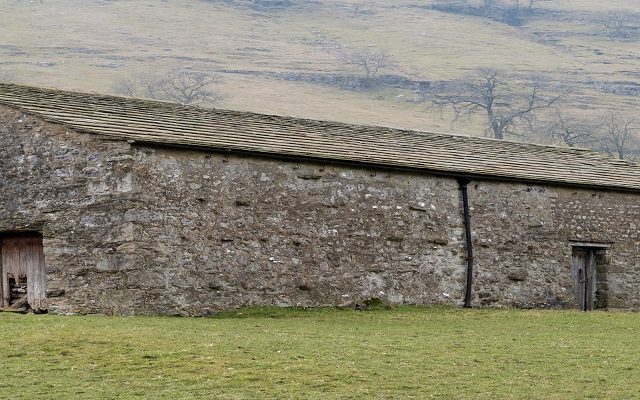At-a-glance guide to new legislation affecting farms and estates
With the legislation affecting landowners changing more rapidly than it has in decades, Strutt & Parker pinpoints the key policy changes currently in the pipeline affecting all aspects of estate management.
FARMING
ENGLAND
- The Agriculture Bill outlines how direct payments (Basic Payments) will be phased out between 2021 and 2028. In 2021, farmers face a 5% reduction on the first £30,000 of any BPS payment, rising to a 25% cut on anything over £150,000. These percentages will increase over time.
- Payments are likely to be delinked from 2022, removing the obligation for a BPS recipient to remain farming. Farmers may get the option to take this money as a one-off lump sum.
- A new Environmental Land Management System (ELMS) will be rolled out nationally in late 2024 offering ‘public money for public goods’.
- Countryside Stewardship available until 2023.
SCOTLAND
- A detailed farming policy for Scotland is yet to be agreed, with a Farming and Food Production Future Policy Group due to set out its proposals for a post-2024 policy this the summer.
- The Future Strategy for Scottish Agriculture report (2018) recommended the goal should be an element of basic income support, but at much lower levels than currently, with the bulk of funding targeted at schemes to boost production efficiency, improve skills and training, and enhance natural capital and biodiversity. These payments could be capped per farm.
- No changes to direct payments are expected in 2020, but improvements to the current system may be made during the period 2021 to 2024.
WALES
- Details of the timetable for Wales to transition to a new system of farm support are not yet available, but the government has said it favours a ‘multi-yeared transition.’
- Direct payments will be paid as normal in 2021. • The intention is for BPS and the current agri-environment scheme, Glastir, to be replaced by a Sustainable Land Management Framework.
ANIMAL WELFARE
- The Conservative Party manifesto included a pledge to ‘end excessively long journeys for slaughter and fattening’, raising the prospect of a ban on live exports, although no specific proposals have been put forward.
- As part of the Agriculture Bill, the government is considering schemes that would pay England’s farmers for delivering animal welfare improvements.
- A Trade and Agriculture Commission is being established to consider how trade policies can be framed to ensure the farming sector remains competitive and that UK animal welfare and environmental standards in food production are not undermined by imports produced to lower standards.
ENVIRONMENT
- The legally binding target to reach net zero greenhouse gas emissions by 2050 came into force in June 2019 and many of the government’s policy proposals tie into meeting this commitment.
Key elements of the Environment Bill, introduced to Parliament in January 2020, are:
- A mandatory requirement for Biodiversity Net Gain (BNG) in the planning system, to ensure new developments do not lead to a decline in biodiversity.
- Proposed legislation for long-term private conservation covenants between landowners and conservation charities or public bodies, which could be legally binding on future owners of the land.
- Improving air quality through legally binding targets to reduce fine particulate matter (PM2.5). Plans have already been announced to phase out the sale of coal and wet wood for burning in the home between 2021 and 2023.
- Reforms to the water abstraction licensing system are planned, enabling the variation or revocation of abstraction licences without the regulator being liable to pay compensation to the licence holder in certain conditions.
- Additional policy developments include the possible creation of a new National Park In the Chilterns and a new national forest in Nottinghamshire, as set out in the Glover Review.
- The government also wants 30,000ha per annum of new woodland over the next five years.
PROPERTY
- Five-yearly electrical safety checks became a legal requirement for any new tenancies from 1 July 2020 and will become a requirement for existing tenancies from 1 April 2021.
- The Renters’ Reform Bill, announced in the Queen’s speech, aims to deliver a fairer and more effective rental market for tenants and landlords and builds on a raft of new housing legislation introduced over the past two years.
No timetable has been set for the Bill’s introduction, but the main elements are:
- Abolishing ‘no fault’ evictions at the end of fixed term contracts by removing section 21 of the Housing Act 1988 and reforming the grounds for possession so tenants cannot be evicted without good reason.
- Section 8 eviction process will be strengthened, giving landlords more rights to gain possession through the courts where there is a legitimate need for them to do so.
- Introduction of a new lifetime deposit so tenants don’t need to save for a new deposit every time they move.
LABOUR
- Labour costs are set to rise as a result of statutory wage increases, with a target for the National Living Wage of £10.50/hr by 2024.
- A new points-based immigration system, with visas limited to skilled workers earning a minimum salary of £25,600/yr, will take effect from 1 January 2021. This will have implications for the availability of seasonal workers, although a new agricultural workers scheme may be introduced to support the sector.
CONNECTIVITY
- Since March 2020, consumers and businesses without access to a decent broadband connection have had the legal right to request one through the Universal Service Obligation (USO).
- The Budget committed £5bn to support the rollout of gigabit-capable broadband in the most difficult to reach 20% of the country.
- Mobile operators and government have struck a Shared Rural Network agreement which should mean 95% of the UK’s landmass has 4G mobile coverage by the end of 2025.
HOUSING, DEVELOPMENT AND INFRASTRUCTURE
- The government has pledged to build one million more homes in the next five years and to deliver significant improvements in critical infrastructure, including building the HS2 high-speed rail link.
- The Future Homes Standard includes a commitment to ban fossil fuel boilers in new homes from 2025.
BUSINESS AND ENTREPRENEURSHIP
- The UK Industrial Strategy Shared Prosperity Fund – the government’s planned replacement for EU structural funding – could become an important source of funding for UK rural estates and farms over the next decade.
This article first appeared in the Spring/Summer 2020 issue of Land Business. For more download the full Land Business Spring/Summer 2020 publication.






